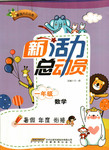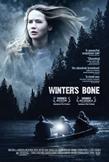题目内容
For most informal dinners,you should wear comfortable,______ clothes.
| A.fake | B.casual | C.gentle | D.curious |
B
解析试题分析:fake伪造的;casual随便的;gentle文雅的;curious稀奇的。句意:对于去赴非正式的晚宴,你应穿舒适的便装就行。
考点:考查形容词的用法。
点评:本题难度适中。形容词是近几年的高考的热点,需要考生平时注意积累,牢记它们的用法及区别。
即学即练:The boy was _____about everything he saw.
A.fake B. casual C. gentle D. curious
解析:D。句意:那男孩对所见的一切都感到好奇。

练习册系列答案
 新活力总动员暑系列答案
新活力总动员暑系列答案 龙人图书快乐假期暑假作业郑州大学出版社系列答案
龙人图书快乐假期暑假作业郑州大学出版社系列答案
相关题目
 A.It is about the legend of vampire, the story of the wolf man, the campus life, moved love story, horror, adventure and other elements. The story begins with the main character, Isabella (Bella) Swan, moving from Phoenix, to the small town of Forks, a dreary and rain-filled place, to live with her father. She develops a relationship with fellow student, Edward Cullen, who initially annoys her, but despite a rough beginning, they fall in love. After witnessing some strange behavior from Edward, Bella eventually discovers that he is a vampire, but despite the very real risk to her life, she cannot bear to be apart from him. Eventually Bella is introduced to Edward’s vampire family, not all of who welcome her with open arms, however, it is Edward’s family that go to great lengths to save Bella when her life is threatened.
A.It is about the legend of vampire, the story of the wolf man, the campus life, moved love story, horror, adventure and other elements. The story begins with the main character, Isabella (Bella) Swan, moving from Phoenix, to the small town of Forks, a dreary and rain-filled place, to live with her father. She develops a relationship with fellow student, Edward Cullen, who initially annoys her, but despite a rough beginning, they fall in love. After witnessing some strange behavior from Edward, Bella eventually discovers that he is a vampire, but despite the very real risk to her life, she cannot bear to be apart from him. Eventually Bella is introduced to Edward’s vampire family, not all of who welcome her with open arms, however, it is Edward’s family that go to great lengths to save Bella when her life is threatened.  B. With an absent father and a withdrawn and depressed mother, 17 year-old Ree Dolly keeps her family together in a dirt poor rural area. She's taken backwards however when the local Sheriff(县治安官) tells her that her father put up their house for his bail(保释)and unless he shows up for his trial in a week's time, they will lose it all. She knows her father is involved in the local drug trade and manufactures crystal meth but anywhere she goes the message is the same: stay out of it and stop poking your nose in other people's business. She refuses to listen, even after her father's brother, Teardrop, tells her he's probably been killed. She pushes on, putting her own life in danger, for the sake of her fam
B. With an absent father and a withdrawn and depressed mother, 17 year-old Ree Dolly keeps her family together in a dirt poor rural area. She's taken backwards however when the local Sheriff(县治安官) tells her that her father put up their house for his bail(保释)and unless he shows up for his trial in a week's time, they will lose it all. She knows her father is involved in the local drug trade and manufactures crystal meth but anywhere she goes the message is the same: stay out of it and stop poking your nose in other people's business. She refuses to listen, even after her father's brother, Teardrop, tells her he's probably been killed. She pushes on, putting her own life in danger, for the sake of her fam ily until the truth, or enough of it, is revealed.
ily until the truth, or enough of it, is revealed. C. Dom Cobb is a skilled thief, the absolute best in the dangerous art of extraction, stealing valuable secrets from deep within the subconscious during the dream state, when the mind is at its most vulnerable. Cobb's rare ability has made him a coveted(妄想的) player in this deceitful new world of corporate espionage, but it has also made him an international fugitive. Now Cobb is being offered a chance at redemption(赎). One last job could give him his life back but only if he can accomplish the impossible-inception. Instead of the perfect heist, Cobb and his team of specialists have to pull off the rever
C. Dom Cobb is a skilled thief, the absolute best in the dangerous art of extraction, stealing valuable secrets from deep within the subconscious during the dream state, when the mind is at its most vulnerable. Cobb's rare ability has made him a coveted(妄想的) player in this deceitful new world of corporate espionage, but it has also made him an international fugitive. Now Cobb is being offered a chance at redemption(赎). One last job could give him his life back but only if he can accomplish the impossible-inception. Instead of the perfect heist, Cobb and his team of specialists have to pull off the rever se: their task is not to steal an idea but to plant one. But no amount of c
se: their task is not to steal an idea but to plant one. But no amount of c areful planning or expertise can prepare the team for the dangerous enemy that seems to predict their every move...
areful planning or expertise can prepare the team for the dangerous enemy that seems to predict their every move... D. Reflecting on her earlier life, she observes that for most of it she was either with a man or in the process of leaving one, and so in the first stages of her journey she experiments with singleness. Not with solitude, exactly, since Liz is naturally sociable and acquires friends easily. Back home in New York she has Delia, and in Rome a Swedish woman named Sofi introduces her to an amicable(心平气和)group of Italians, including a fellow whose last name is Spaghetti. While he is seen mainly in group shots, his namesake food is filmed in loving close-ups. In keeping with the theme of self-examination, Liz’s trip is confined to countries that begin with the letter “I”. From the ruins of Italy, to an ashram in India, and then to Indonesia......
D. Reflecting on her earlier life, she observes that for most of it she was either with a man or in the process of leaving one, and so in the first stages of her journey she experiments with singleness. Not with solitude, exactly, since Liz is naturally sociable and acquires friends easily. Back home in New York she has Delia, and in Rome a Swedish woman named Sofi introduces her to an amicable(心平气和)group of Italians, including a fellow whose last name is Spaghetti. While he is seen mainly in group shots, his namesake food is filmed in loving close-ups. In keeping with the theme of self-examination, Liz’s trip is confined to countries that begin with the letter “I”. From the ruins of Italy, to an ashram in India, and then to Indonesia......  E. John Crowley is a worried businessman and father of two children stricken with Pompe disease, suffering of muscle deterioration(恶化)with an age expectancy of nine years. With critical birthdays looming on the horizon, Crowley decides to take a chance and pursue research scientist Robert Stonehill, a rebellious thinker in the field of Pompe with radical ideas on enzyme therapy. Promising money he doesn't necessarily have, Crowley talks Stonehill into a business venture, pushing the irascible(暴躁的) scientist into research while he worries about the cash flow. With the clock ticking, Stonehill presents challenging theories, irritating the interest of pharmaceutical giants, who demand results practically overnight. With Stonehill feeling the heat during this demoralizing process, Crowley fights to maintain the face of Pompe, to keep the cure from becoming just another compromised drug on the market.
E. John Crowley is a worried businessman and father of two children stricken with Pompe disease, suffering of muscle deterioration(恶化)with an age expectancy of nine years. With critical birthdays looming on the horizon, Crowley decides to take a chance and pursue research scientist Robert Stonehill, a rebellious thinker in the field of Pompe with radical ideas on enzyme therapy. Promising money he doesn't necessarily have, Crowley talks Stonehill into a business venture, pushing the irascible(暴躁的) scientist into research while he worries about the cash flow. With the clock ticking, Stonehill presents challenging theories, irritating the interest of pharmaceutical giants, who demand results practically overnight. With Stonehill feeling the heat during this demoralizing process, Crowley fights to maintain the face of Pompe, to keep the cure from becoming just another compromised drug on the market.  F. Bob Ho, a Chinese spy who was loaned to the CIA and is now retiring so he can settle down and marry his girlfriend, Gillian, who lives next door and doesn't know he's a spy. She thinks he's a pen importer. Around her, Bob acts like a boring country man, wears eyeglasses, and hides his super-spy abilities. Gillian loves that he's normal and reliable, not like her ex-husband, who ran off and left her with three kids. So Gillian has to go out of town because her father's in the hospital, and Bob volunteers to babysit so he can bond with the children. Meanwhile, a Russian terrorist named Poldark has escaped CIA custody and is looking for a top-secret code that young Ian accidentally downloaded from Bob's computer, which means Poldark and his goons are going to show up any minute now and kill them all. Bob must save the children -- and the world!
F. Bob Ho, a Chinese spy who was loaned to the CIA and is now retiring so he can settle down and marry his girlfriend, Gillian, who lives next door and doesn't know he's a spy. She thinks he's a pen importer. Around her, Bob acts like a boring country man, wears eyeglasses, and hides his super-spy abilities. Gillian loves that he's normal and reliable, not like her ex-husband, who ran off and left her with three kids. So Gillian has to go out of town because her father's in the hospital, and Bob volunteers to babysit so he can bond with the children. Meanwhile, a Russian terrorist named Poldark has escaped CIA custody and is looking for a top-secret code that young Ian accidentally downloaded from Bob's computer, which means Poldark and his goons are going to show up any minute now and kill them all. Bob must save the children -- and the world!  ok like you're breaking up
ok like you're breaking up